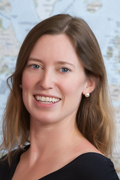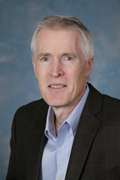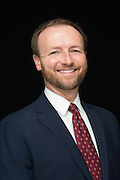The 2019 edition of the National Footprint and Biocapacity Accounts is NOW available! Watch Laurel Hanscom, CEO of Global Footprint Network, share the main highlights on launch day, April 24 (at right).
Four distinguished panelists agreed to join us in conversation about solutions to help #MoveTheDate and bring the National Footprint and Biocapacity Accounts in balance.
They have honed their skills in the four sustainability solutions pillars: population, food, energy, urban mobility. The panel was moderated by Laurel Hanscom, CEO, Global Footprint Network.
 ALISHA GRAVES, MPH, Co-Founder of the OASIS Initiative at the University of California, Berkeley, and President of Venture Strategies for Health and Development
ALISHA GRAVES, MPH, Co-Founder of the OASIS Initiative at the University of California, Berkeley, and President of Venture Strategies for Health and Development
Alisha Graves leads strategy, development and advocacy efforts for The OASIS Initiative and is the President of Venture Strategies for Health and Development, a non-profit organization aiming to help stabilize global population by securing women’s freedom to choose their family size. Alisha lectures internationally on population and food security in the Sahel. She is a research fellow for Project Drawdown, analyzing the potential contribution of family planning for reducing greenhouse gas emissions. Previously, she worked to improve women’s access to misoprostol, a generic, essential medicine. In this role, she worked on drug registration, operations research, and advocating for evidence-based maternal health policies across seven countries in Sub-Saharan Africa and Southeast Asia. She completed her MPH in International Maternal and Child Health at UC Berkeley in 2006.
 STEVEN FINN, VP of Food Waste Prevention, Leanpath
STEVEN FINN, VP of Food Waste Prevention, Leanpath
Steve leads Leanpath teams in helping clients take control of their food waste, reducing waste and costs while engaging employees to institute a culture of food waste prevention. He is also a member of the Leanpath leadership team with extensive expertise in food waste reduction and prevention strategies, speaking frequently at industry events and providing education and leadership for clients. He has conducted extensive research into the problems of food security, water security, and global food waste, and has developed innovative public-private partnerships to capture and redistribute excess food to mitigate hunger. Steve teaches “Global Pennovation” at the University of Pennsylvania and writes about food at https://foodforthoughtfulaction.com.
 EMILY FRITZE, Director of Strategy and Business Development, Powerhouse
EMILY FRITZE, Director of Strategy and Business Development, Powerhouse
Emily manages strategic partnerships, business development, and programming for Powerhouse, an incubator and accelerator that supports entrepreneurs building the future of energy. She supports Powerhouse Ventures pipeline development and post-investment portfolio support. Previously, she was a Senior Director for Energy & Environment in the Office of Cabinet Affairs for Energy & Environment at the White House. She served also as special advisor to ARPA-E and policy aide to Secretary of Energy Ernest Moniz and Congresswoman Gabrielle Giffords.
 TOM MAGUIRE, Director of the Sustainable Streets Division at the San Francisco Municipal Transportation Agency (SFMTA)
TOM MAGUIRE, Director of the Sustainable Streets Division at the San Francisco Municipal Transportation Agency (SFMTA)
Passionate about using his experience in planning, engineering, policymaking, and management to build great cities, Tom directs SFMTA’s ambitious efforts to achieve Vision Zero. The 900+ employees of his Sustainable Streets team operate, engineer, design, and plan the city’s traffic, parking, pedestrian and bicycle infrastructure and provide transit security and parking enforcement. Previously, Tom served as Assistant Commissioner at the New York City Department of Transportation where he oversaw bus rapid transit, freight mobility, peak rate parking (PARK Smart), alternative fuels programs, and directed the effort to implement congestion pricing in Manhattan in 2007-2008. He believes in unlocking the potential of streets, transit systems, and public space to create places that are safe, sustainable, and equitable for all.
